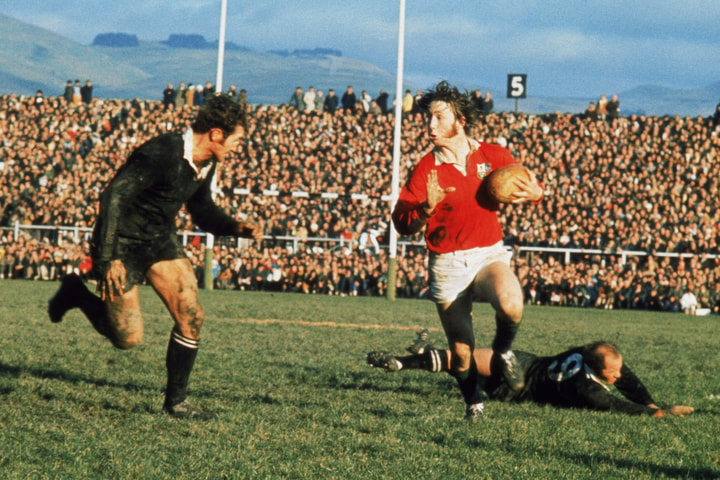
18 January 2026

When England and Scotland took the field for the first time on 27th March 1871, they were led by Francis Moncrieff and Frederick Stokes.


At 21, Edinburgh born Moncreiff was the senior of the two and, as a former pupil of Edinburgh Academy and captain of Edinburgh Academicals, was in the most familiar of circumstances as the two teams ran out at Raeburn Place. His playing style was described in the 1871 Football Annual thus:
' Plays either forward or half-back, is very active in the field, and a very neat and effective dribbler.'
Stokes was just 20 and, like Moncreiff, had grown up surrounded by rugby football. A former Rugby School pupil, his childhood home was on the edge of Blackheath Common, home of Blackheath FC who he captained in 1871. His team-mate, Arthur Guillemard, described his playing qualities thus:
'As a player, he was one of the very best examples of a heavy forward, always on the ball, and first-rate either in the thick of a scrummage or in a loose rally, a good dribbler, very successful in getting the ball when thrown out of touch, a very long drop and a particularly safe tackle. For his club he often played half-back with success as, though not one of the fastest runners, his powers of "shoving-off" were very great. He was also one of the very longest and best of place-kicks.'
Both Moncreiff and Stokes had been selected amongst the forwards and would have been busy during the first half of a match that was noted for fiercely contested scrummaging. Inevitably the game opened up more in the second half, when all of the points were scored. After falling behind to a converted Scotland try, England struck back with a try of their own and Stokes took it upon himself to kick the all-important conversion that would have brought the scores level.
It was no easy task however; Reginald Birkett had touched down in corner and Stokes' kick was unsuccessful. Scotland seemed the fresher in the closing stages of the game and William Cross, whose goal separated the two sides, touched down again in the closing stages and Moncreiff became the first victorious captain in international rugby.
Both Stokes and Moncreiff remained in favour and both would lead their teams out a second time in the return fixture at the Oval in 1872. This time Stokes' pack got on top with England scoring three tries to Scotland's none and running out 2-1 winners on goals scored.
They returned a final time in 1873 for the third international fixture at West of Scotland club in Glasgow. Having had time to understand each other's game, they played each other to a standstill in wet conditions as neither side fashioned a try or goal. The two captains' internationals careers, therefore, came to an end with identical records of having won one, lost one and drawn one.
Moncreiff would go on to qualify as a Chartered Accountant and have six children before passing away in 1900, aged 50. Stokes became a Solicitor and had five children, before passing away in 1929 at the age of 78.
Visit our website, book your visit and follow us on Facebook, Twitter and Instagram.